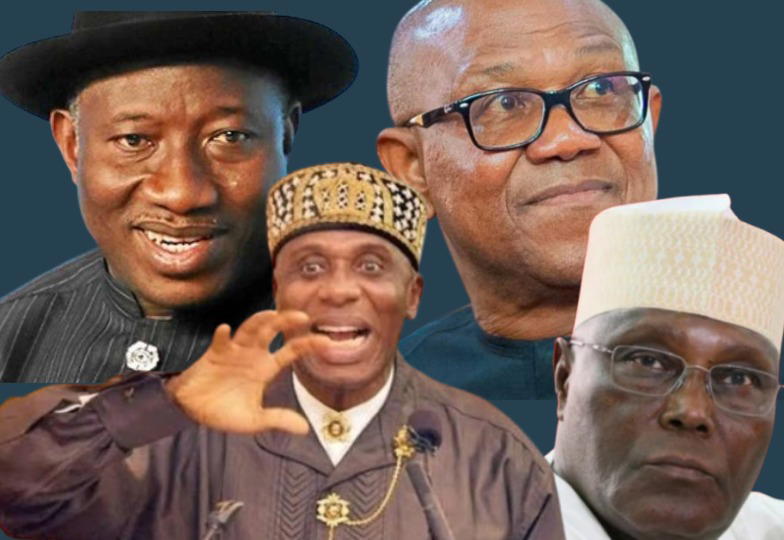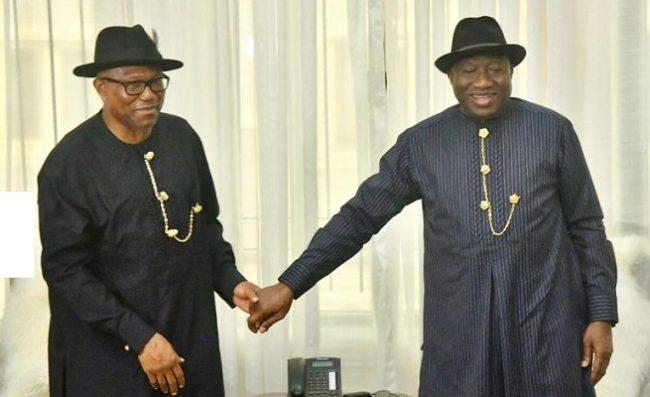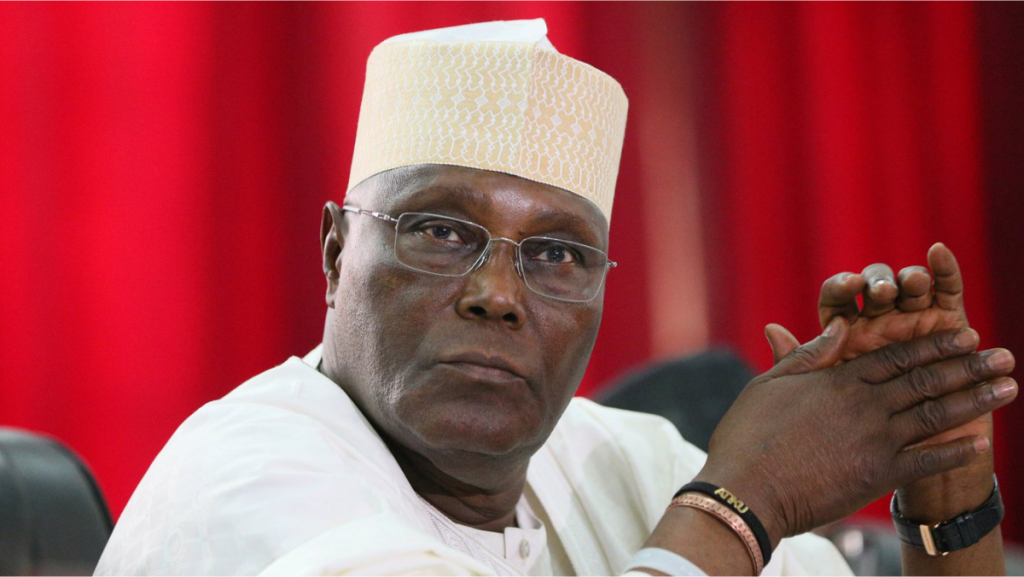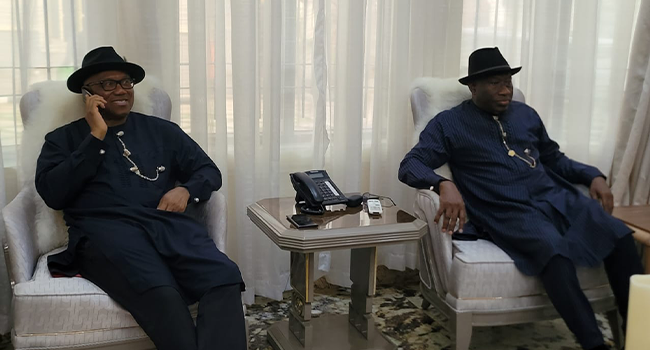2027 Presidency: North-South battlelines redrawn as oppositions seek winning formula

By Bayo Wahab
Since the Peoples Democratic Party, PDP, announced its decision to zone its 2027 presidential ticket to the South, the familiar debate over power rotation between the North and South has resurfaced, shaping the 2027 narrative more about geography over competence.
The party’s southern ticket signals a strategic move to reclaim lost ground and position itself as a credible alternative to President Bola Tinubu’s All Progressives Congress, APC. The move has also rekindled calls for the return of former President Goodluck Jonathan and former Labour Party flagbearer Peter Obi, both of whom remain influential figures with national appeal, to PDP.
Constitutionally, Jonathan can only serve a single tenure if he returns, having previously governed from 2010 to 2015. This makes him attractive to PDP strategists who view his candidacy as a transitional option — a southerner who could hold power for four years before returning it to the North in 2031.

Obi, on the other hand, has already pledged to serve only one term if given the mandate, a promise designed to calm northern fears of prolonged southern dominance.
However, while many political analysts believe the PDP took the right decision ahead of the forthcoming general election, many critics, including party members, dismissed the move as a belated idea.
In the opinion of Minister Nyesom Wike’s media aide, Lere Olayinka, it’s too late to zone the party’s presidential ticket to the South because, according to him, the North would rather wait for President Bola Tinubu to complete his eight years in 2031, than support a fresh southern candidate, whose tenure would likely extend beyond four years.
Corroborating this view, Festus Keyamo, the Minister of Aviation and Aerospace Development, shared a similar sentiment about the PDP and its plan to field a southern presidential candidate in the coming election.
According to Keyamo, the PDP would face ‘serious risks’ if the party’s 2027 presidential calculations are entirely hinged on fielding former President Goodluck Jonathan, ex-Anambra governor, Peter Obi, or Governor Seyi Makinde of Oyo State.
In Keyamo’s estimation, none of the three southern candidates is big enough to garner support outside their region to defeat President Tinubu.

Interestingly, while the PDP’s strategy is tied to Southern candidacy to correct its 2023 mistake, the new and coalition-backed African Democratic Congress, ADC, appears to be counting on the numerical strength of the North.
Unlike the PDP, the ADC has stated that its presidential ticket is open to all qualified and eligible Nigerians, adding that zoning the presidency to a region two years ahead of the election is anti-people.
Meanwhile, former Vice President Atiku Abubakar, one of the founding leaders of the coalition, has signaled interest in the ADC ticket. Many critics of the former VP have argued that the ADC may have been formed solely for Atiku to actualise his long-held presidential ambition.
For Atiku, the equation is straightforward: while Tinubu controls incumbency and southern structures, the North retains the numbers. The challenge, however, is whether Nigerians, weary of recycled candidacies, will embrace another Atiku bid.

The North-South Chessboard
At the heart of the calculations in the PDP and the ADC lies Nigeria’s age-old debate over rotation. Since 1999, the informal zoning agreement between North and South has shaped presidential politics.
In 2023, President Tinubu’s emergence fulfilled southern aspirations after eight years of former President Muhammadu Buhari, a northerner.
By 2027, however, questions will sharpen: should the South retain power for another four years, or should it return northwards?
Opposition parties are divided on how to respond to this. While the PDP insists on a southern candidate — Jonathan or Obi — for stability and fairness, the ADC seems to be positioned for a northern heavyweight, whose appeal and popularity will translate to votes that’ll take power from Tinubu.
The South’s One-Term Card
Both Jonathan’s and Obi’s “single-term presidency” narrative have added an intriguing twist. For northern stakeholders, the prospect of a short southern presidency is appealing, as it virtually guarantees the return of power by 2031. Yet, skeptics warn that such promises may prove difficult to enforce once power is secured.
Still, the narrative resonates. Obi’s one-term offer is central to his outreach to northern elites, presenting him as a bridge-builder willing to sacrifice personal ambition for national unity. Jonathan, meanwhile, benefits from nostalgia among some Nigerians who recall his tenure as a more stable era compared to today’s economic turbulence.

As the battlelines harden, 2027 is shaping up to be less about ideology and more about arithmetic — north versus south, incumbency versus opposition, and one-term pledges versus long-term ambitions.
The opposition’s ability to craft a winning formula will depend on whether it can manage these contradictions without alienating key blocs.
For Nigerians, the bigger question remains whether these political calculations will translate into genuine governance improvements, or whether the 2027 contest will simply recycle old rivalries under new banners.
Whatever the case may be, one thing is certain: the North-South chessboard has been reset, and the next two years promise a fierce struggle for Nigeria’s political soul.
The post 2027 Presidency: North-South battlelines redrawn as oppositions seek winning formula appeared first on Vanguard News.







